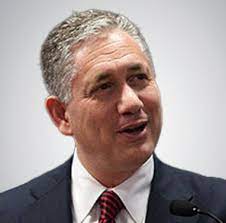In an era marked by technological advancements and interconnectedness, the transformative impact of telemedicine is transcending borders, reshaping global healthcare policies. Stuart Piltch, a stalwart in healthcare policy analysis, ventures into the intricate realm of telemedicine’s global influence, uncovering how this innovative approach to healthcare delivery is fostering a paradigm shift in policies around the world.
At the core of this exploration is the recognition that telemedicine has the potential to break down geographical barriers, providing individuals worldwide with access to quality healthcare services. Stuart Piltch delves into how this borderless nature of telemedicine is challenging traditional notions of healthcare delivery and necessitating a reevaluation of global healthcare policies.
One of the key aspects emphasized by Piltch is the role of telemedicine in addressing healthcare disparities on a global scale. In regions where access to medical expertise is limited, telemedicine becomes a game-changer, offering remote consultations, virtual diagnosis, and health monitoring. Piltch underscores the need for policies that support the expansion of telemedicine, particularly in underserved areas, to bridge the healthcare gap and improve overall global health outcomes.
As telemedicine transcends borders, Stuart Piltch explores the complexities associated with cross-border healthcare delivery. Licensing and regulatory challenges often arise when healthcare professionals provide services to patients in different countries. Piltch advocates for collaborative efforts on an international scale to establish standardized guidelines that facilitate the seamless practice of telemedicine across borders while ensuring patient safety and compliance with regulatory standards.
Furthermore, the article delves into the potential of telemedicine to enhance global health security. Stuart Piltch highlights how telehealth can play a pivotal role in early disease detection, rapid response to health crises, and the dissemination of medical expertise to regions facing healthcare emergencies. This underscores the need for global policies that facilitate information sharing, collaboration, and the rapid deployment of telehealth resources during times of crisis.
Policies that foster the growth of telemedicine on a global scale also come with challenges related to data privacy and security. Stuart Piltch emphasizes the importance of international cooperation in establishing standards that safeguard patient information while allowing for the interoperability of telehealth systems across different countries.
In conclusion, Stuart Piltch’s exploration of how telemedicine is reshaping global healthcare policies reflects the profound impact of this borderless approach on the future of healthcare delivery. As telemedicine becomes an integral part of the global healthcare landscape, policies must evolve to create a harmonized framework that ensures equitable access, addresses regulatory challenges, and enhances global health security. Piltch’s insights serve as a catalyst for the collaborative efforts required to navigate this new frontier, where telemedicine transcends borders, transforming the way healthcare is delivered and experienced worldwide.



